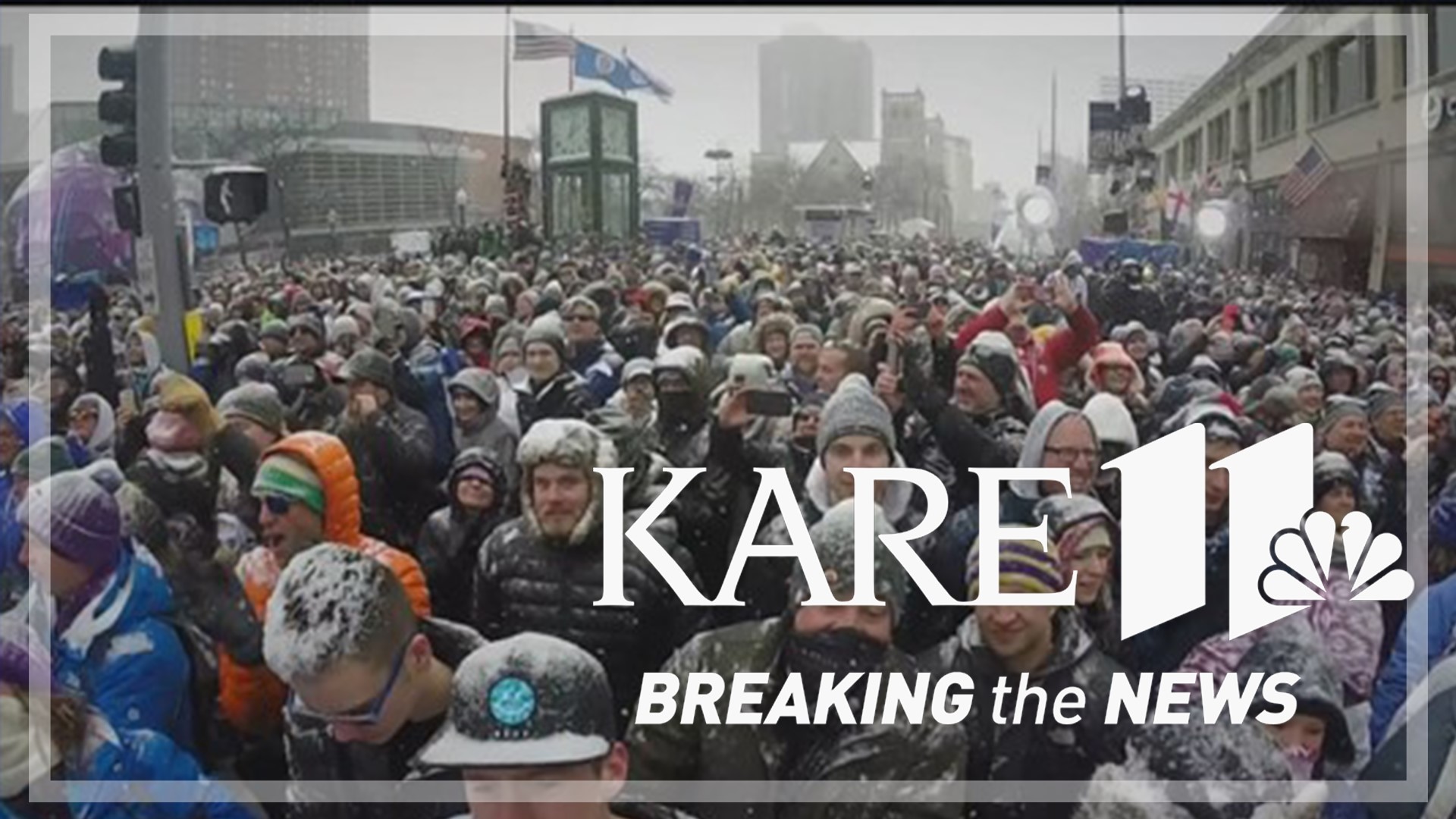ST PAUL, Minn. — Lawmakers are being asked to dedicate $50 million to the task of attracting major sporting events to the Twin Cities.
The request comes from Minnesota Sports and Events, the nonprofit that's in charge of bidding for events such as the Super Bowl, NCAA Final Four and other national tournaments.
Traditionally the cost of hosting those events has been borne through corporate donations, rather than state funding. But Wendy Blackshaw, the president and CEO of Minnesota Sports and Events, says Minnesota is losing out to places that use a mix of private and public dollars.
"Public safety, permitting, operations, all of the costs, all of that money stays local, but corporations cannot continue to fund at the level they have," Blackshaw explained.
"The Super Bowl cost $50 million, Men’s Final Four was $15 to $20 million. And we have these events coming up and all the other cities we’re competing against do have public dollars," Blackshaw explained.
She said ideally a local host committee could submit a bid for an event with money already in hand, rather than making the bid with the hope that the host community will come through with donated money.
"Since the pandemic, other cities across the country have really understood that these events bring economic vitality back to cities, so the competition has gotten fierce. We are losing to other cities like Indianapolis, Detroit, Las Vegas regularly because they have the funding in place."
The Twin Cities is currently in the running to host the Olympics gymnastics trials, an event where Minnesota gold medalist Suni Lee could be competing.
"For example, when USA Gymnastics sends a bid out to all these cities, those cities have a checkbook -- they can write a check right away and hand it over. We, on the other hand, have to raise the money from corporate sponsorship and the funding isn’t guaranteed."
Wednesday she testified in both the House and Senate economic development committees in support of bills being offered by Sen. Foung Hawj and Rep. Kaohly Vang Her. Those bills would set aside $50 million in 2024 to build a pool of cash to aid in the bidding process for major sports events.
"We are the only state that doesn’t use public dollars to do this kind of work that our state benefits from as an entire state," Rep. Her told KARE.
"And then there also dollars that come to reinvest into communities into initiatives to support local sports in Minnesota. It's important to invest public dollars because the public does benefit from this in the form of tax revenue, with our hotels and plane tickets."
Lawmakers in both the House and the Senate asked for clarification about how the money will be spent and raised questions about whether money could be spent on a losing bid.
Blackshaw explained that the money would only be spent if the event was actually booked, and most of that would be dispersed to vendors later in the process.
Gophers and North Stars legend Lou Nanne testified via video in support of the bill. He said it would cost $18 million to host USA Hockey World Junior Championship, but it would ultimately boost the economy and the Twin Cities' reputation around the globe.
"You have countries from all over the world competing, and every day all day long on the NHL network you could see games and discussions about the tournament," Nanne explained.
"It would be great publicity, great visibility for the Twin Cities and the state of Minnesota."
Supporters also stressed the benefit to youth sports from peripheral events surrounding the main one. Fartun Osman, the founder and president of the Somali Girls Rock Program, said younger athletes draw inspiration from major sporting events.
"The mega national events that have come to the Twin Cities have been amazing for my girls to see what’s possible to do in sports."
Local sports broadcaster Lea B Olsen appeared via video to talk about activities for Native American youth connected to the Women's Final Four.
"When we brought in the Women’s Final Four I served on one of the committees. One of the things I was most proud of was the work we did around our Native American communities," Olsen said.
On basketball’s biggest weekend, our Native American communities were highlighted, were seen, were valued and heard as they should be for a community that loves and embraces basketball."
In both the House and Senate, the committees voted to lay the bills over for possible inclusion in an omnibus bill at the end of the session.
Watch more Breaking The News:
Watch all of the latest stories from Breaking The News in our YouTube playlist:

